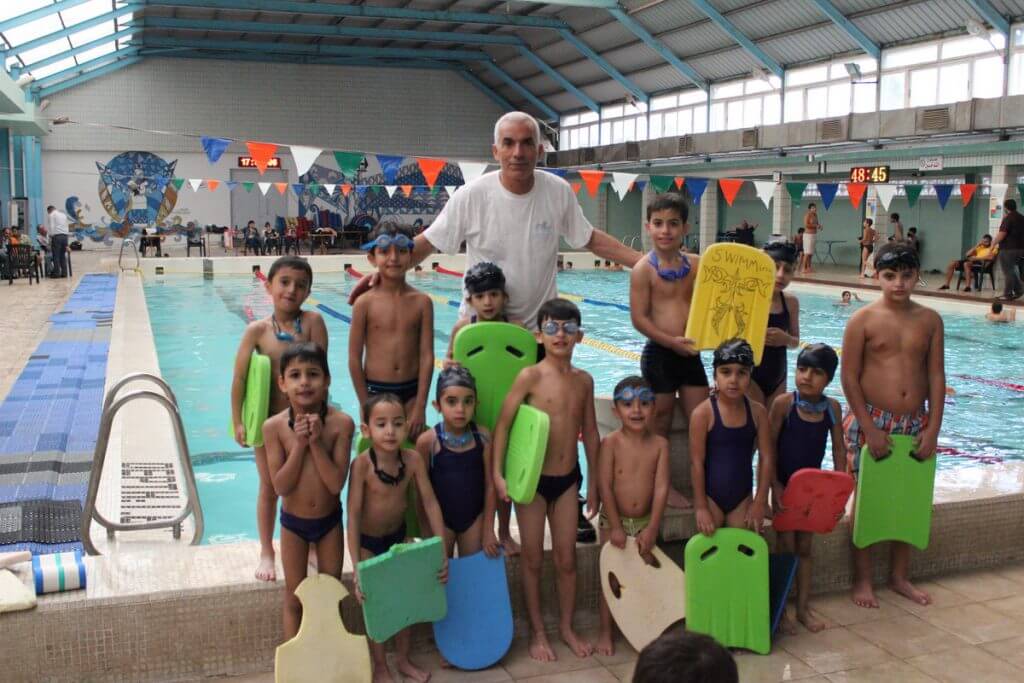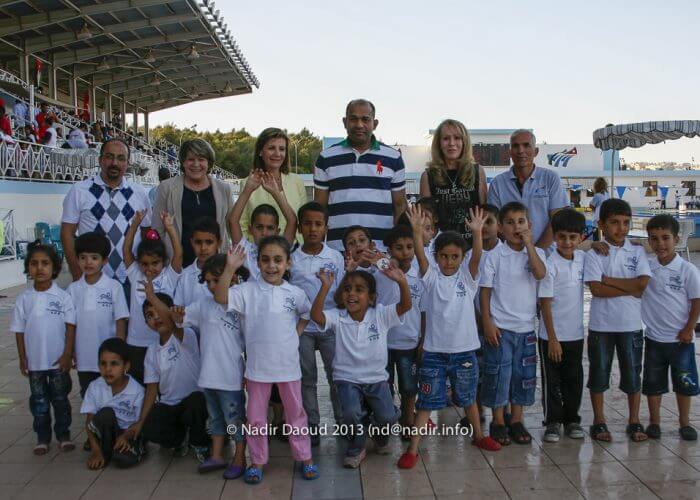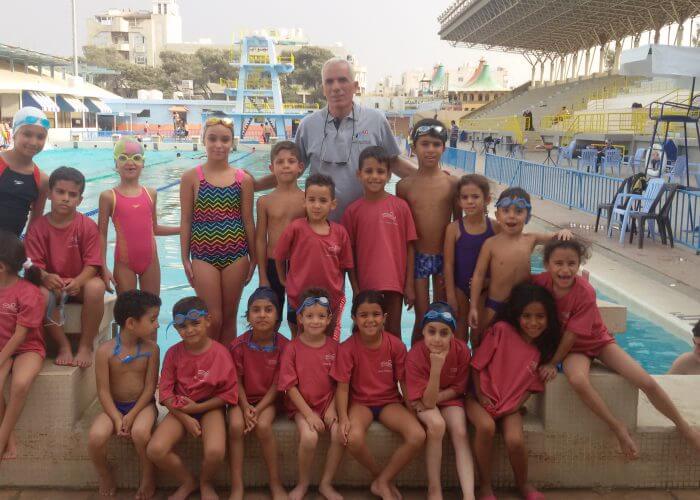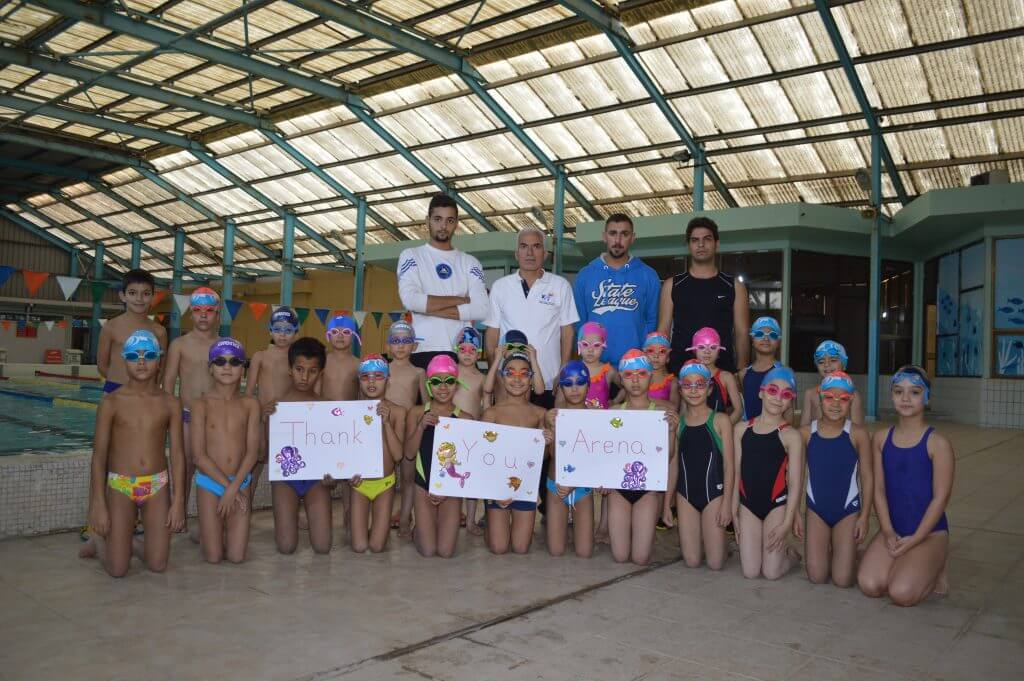Jordanian Swimming: Bringing Orphans to Water

By Chris Balbo, Swimming World College Intern.
The country of Jordan is literally adopting children into the swimming family. The Jordanian Swimming Federation (JSF) has been piloting a swimming program for orphans in the SOS village, which resides in the Jordanian governorate of Irbid. In this village the orphans are housed, fed, and educated. The SOS village was chosen due to the lack of sports and activities for the youth of the area. The Swimming National Program for Orphans has a variety of levels dependent on age and skill.
These levels include: Learn to Swim, Learn to Learn, Train to Train, and Train to Compete. The plan is to have children participate in the program for 10 years or put in 10,0000 hours of training. These numbers are based off the English national governing body for swimming Amateurs Swimming Association (ASA). This program focused on the long-term development of swimming abilities at a high level is endorsed by the JSF and ASA. The Swimming National Program for Orphans currently has 30 swimmers enrolled, ranging from ages 3 to 10. The program aims for the children to improve athletically, socially, and psychologically.

Photo Courtesy: Nadir Daoud
Swimming can be a great way to instill positive qualities, like leadership and discipline, in these children. The benefits of the program extend outside the pool and hopefully nurture skills to get the children involved in the community. With the acquisition of an athletic base through swimming, it would be possible for these orphans to become members of the Jordanian National team.
The director of the program, Faisal Hourani, hopes for the National Swimming Program for Orphans Children Development (LTD) to be a pipeline for the Jordanian National Team.
The program is assisted by volunteer coaches as well as Hourani himself. The program is currently sponsored by Al-Hasan City Club for Youth, which provides pool time and equipment for the children. The program is part of the British Swimming Education Program, providing support for educational and training tools.

Photo Courtesy: Faisal Hourani
The program has been running since 2014, allowing for growth and analysis of the program. There have been a multitude of positive effects among the orphan children involved in the program. With increased practice, there have been athletic and health benefits for the children as seen by improvement in scoring at swim meets.
Hourani has also observed many behavioral and psychological benefits from the training program such as cooperation. The program prevents boredom, isolation, stress, and loneliness through team interaction and socialization. The improvements also extend into the classroom, where participants have seen improved performance in the classroom.
“We are more focused on the human in the program not on the program itself,” Hourani said.”We want the kids to have a fun and equal opportunity to strive for something and earn it, swimming will give them said challenges and successes. […] We believe that they will enjoy a better quality of life and have a limitless future.”
Although there has been great success for the program, there are limitations and challenges. For many age-group swimmers, practice effort is based on temperament. For children, their efforts are sometimes mood-dependent. It has been found that after several years, children will quit after realizing long-term goals require dedication, persistence. Girls especially are seen to quit earlier and more frequently than boys. As the intensity of swimming increases from playful to competitive, some children tend to retreat. There are also administrative difficulties in getting higher-level athletes to Amman in order to train with other members of the National team.

Photo Courtesy: Faisal Hourani
As the program has progressed, the funding has fallen short in it’s ability to sustain adequate resources. Originally the program was sponsored by Arena, which provided basic swim gear such as suits and goggles. However, in recent years a lack of funding is leaving the program in need of help.
“This program needs many instruments, equipment, and tools to be able to elevate the level of performance of the participants. Examples for that include fins, goggles, swimming gears, kicking boards, caps, power paddles, hydro belts, elite pull buoy, center snorkels, towels, resistance training equipment, and devices for testing the aerobic and anaerobic capacities such as spirometry” Hourani said. “Also, the swimmers require training in gyms that provide weight training equipment, treadmills, bikes, and cross-fit training areas. This adds to general costs of the program”
Friends and donors have provided a few meals for the athletes, allowing for them to recover, but meals are not abundant. Post training, the children return to the SOS village in Irbid where they rarely acquire adequate nutrition for recovery. In addition, due to lack of transport, there is a higher absence rate of swimmers.
The National Program for Swimming Orphans is in need of donations and funds. To help, please contact Faisal Hourani at coachfaisal.h@gmail.com




Smashing
Maher Mahfouz Faisal Hourani
Go Jordan Go Jordan Go Jordan!!!!
Megan Frese
Coach Faisal your your efforts are really appreciated . Thanks
I know coach faisal and we appreciate his big efforts…
…More achievements.
Jordan first.
Thanks to the magazine and to the writer Chris for a pamphlet and support for the initiative this.that gives the trainers and program encouragement and support by defining the program to the world
A wonderful and purposeful program
Thanks to all the supervisors, trainers, managers and everyone who contributed to the success
Good luck to everyone
Thank you Mariposa for that world i appreciate